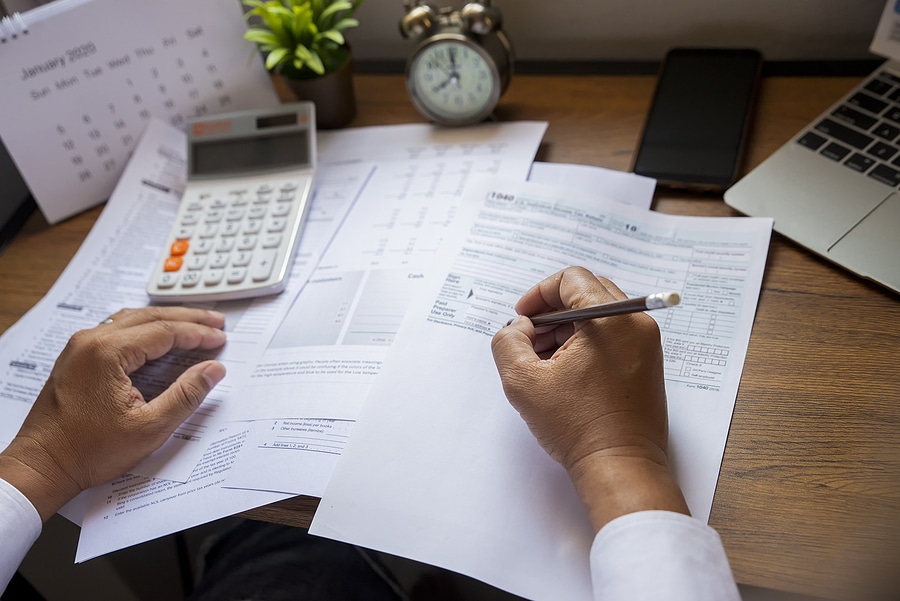
Everything you need to know about SMSF financial statements
Self-managing your superannuation comes with a number of benefits:
- You have the final say over where your money goes
- More control over your tax position
- The ability to pool your super with others and access bigger opportunities
However, it also comes with some disadvantages – namely, the fact that you’ll have to do a lot more work compared to an industry or retail fund!
People with SMSFs need to take a much more active role in managing their super – you’ll also need to strategise and administer your nest egg.
One of the many responsibilities you’ll have as the beneficiary of an SMSF is to prepare SMSF statements, either on your own or in conjunction with an SMSF accountant in Melbourne.
But what exactly does that involve? Our personal accountants in Melbourne explain everything you need to know.
SMSF financial statements – what are they, and what do they involve?
SMSF financial statements are requirements for anyone who’s self-managing their super, and play a crucial part of the SMSF auditing process.
Just like a retail or industry fund sends you regular reports on your total super balance as well as your returns, your SMSF is also required to keep you in-the-loop and informed about how your nest egg is performing.
Of course, since it’s a self-managed fund, beneficiaries of SMSFs are much more actively involved in this process than those who don’t self-manage!
As part of that, there are 2 types of annual SMSF tasks you won’t be able to avoid:
- Having your fund audited by an independent, ASIC-certified auditor
- Lodging an annual SMSF return with the ATO
What exactly do these involve? And what sorts of SMSF financial statements do you need?
1) SMSF audits (and what sorts of SMSF financial are required)
If you’ve engaged an SMSF accountant in Melbourne to administer and look after your retirement fund, this isn’t something you’ll need to worry about.
If you’re going it completely alone however, we suggest reading on!
Under Australian laws, all SMSFs must be audited annually, with an independent auditor appointed 45 days before your SMSF annual return to the ATO is due (more on that later).
In order to meet this obligation, you’ll need to provide your selected fund auditor with all the relevant information regarding:
- Your fund’s accounts
- Transactions over the financial year
- Bank statements
In particular, you’ll need to create an SMSF balance sheet.
Like any other balance sheet, this document lists all of the assets held as part of your fund, in addition to any voluntary contributions you’ve made and liabilities for any borrowing carried out using your SMSF.
In some cases, your auditor may even request additional information, which you’ll need to provide within 14 days.
Using all of this information, an SMSF audit is performed, where your fund’s compliance with superannuation law is assessed. Any non-compliance issues raised here, will be raised – and fixed – here.
Once that’s done, you’ll need to get your SMSF financial statement signed by all beneficiaries of the fund – once that’s done, it’s time to move on to your SMSF return.
Compliance matters
Obviously, a compliant SMSF helps you avoid some of the penalties that come with non-compliance such as fines.
However, that isn’t the only benefit to compliance.
Under some circumstances, a compliant fund can claim deductions on its tax return such as:
- SMSF auditing fees
- Supervisory levy
- Certain types of insurance
- Costs incurred in order to produce income using your fund
Each of these are deductible from your SMSF’s taxable income, reducing SMSF taxes.
Of course, in order to claim these deductions, your SMSF will need to be compliant and be able to successfully pass its annual audit!

2) What does your annual SMSF Return do, and what does it involve?
Once an audit of your SMSF is finalised, it’s time to lodge your annual SMSF return.
Some people refer to SMSF annual returns as SMSF tax returns. While superannuation taxes are a part of this annual return, this form is used to report on much more than just the tax your SMSF needs to pay.
It covers everything relating to your SMSF, including:
- Income tax
- Regulatory information
- Member contributions
- Returns generated
- Assets and liabilities
Superannuation taxes can be complicated, especially with so many different types of assets out there, as well as all the different exceptions and rules. If you thought filling out your personal tax return was difficult, you haven’t seen anything yet!
If you’re struggling, our SMSF accountants can help.
As specialists in superannuation taxes and reporting requirements, we can put together an annual SMSF return that’s compliant, accurate and timely.
Ask your Self-managed Super Fund accountants when you have to lodge your SMSF return
For the first year, the deadline is the same as your tax return – the 31st of October.
After that however, you’ll need to lodge your annual SMSF return by the 28th of February.
If you’ve only just started on your SMSF journey after making the switch from a retail fund, you may not have to file a return just yet. In the ATO’s eyes, an SMSF isn’t established until it has a closing balance, or assets set aside for the benefit of members.
Once it satisfies these criteria however, you’ll need to start reporting.
Need an SMSF accountant in Melbourne?
There are many reasons to strike out on your own and start managing your own super. However, that doesn’t mean that you’ll need to be completely alone!
Self-managing your super can be a lot of work. If you need support with your SMSF in Beaumaris, Black Rock, or anywhere else across Bayside and greater Melbourne, we invite you to get in touch with Bruce Edmunds & Associates.
Whether you only need help with your annual SMSF return or for help administering your SMSF day-to-day, our SMSF accountants are here to help.
Since 1966, our accountants in Beaumaris have been helping Melburnians get to where they want to be with qualified accounting advice and support.
If need be, that can include administering your SMSF for you.
Find out how our personal accountants in Melbourne can help you – give us a ring on (03) 9589 5488 or click here to book an appointment online.






















